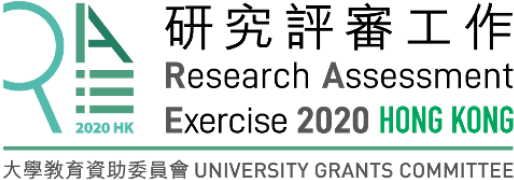Unit of Assessment:
Research categories:
?Economics & Business
Management (2)
Social Sciences, General
Education & Educational Research (6)
Case Study
Building a leadership development blueprint in Hong Kong (HK) in the school-based management era
1. Summary of the impact
We have assisted the Education Bureau (EDB) to create various development programmes for school leaders since 2003, drawing on research findings. Two of these programmes, the Certification for Principalship and the Structured Training Programme for Newly-appointed Principals developed by Prof Walker in 2003 and Prof Kwan in 2014 respectively, are accredited by EDB as compulsory credentials for job incumbents. The training programmes developed by Prof Kwan for school managers/supervisors and secondary assistant principals in 2012 and 2017 respectively are recommended by the EDB as preferred qualifications for new appointments in the recent 2019 EDB policy review on school-based management.
2. Underpinning research
With the support of HK$600,000 by the University Grants Committee (UGC), Prof Walker (serving at CUHK from 1992 to 2010) and Prof Kwan (serving at CUHK since 2003) conducted a research project “Assistant Principals in Secondary Schools of Hong Kong: Their Work Lives and Preparation for the Principalship – A Longitudinal Investigation” in 2003. The study identified seven responsibility dimensions undertaken by HK school principals: Strategic Direction and Policy Environment, External Communication and Connection, Quality Assurance and Accountability, Teaching, Learning and Curriculum, Staff Management, Resource Management, and Leaders and Teacher Growth and Development.
These dimensions informed a job responsibility framework for the development of the Certification of Principalship programme [3.1, 3.2]. The findings revealed that aspiring principals found staff management the most challenging responsibility in the Chinese cultural school context [3.3] and that about 70% of Assistant Principals (APs) were not interested in becoming principals, considering the influence of the school sponsoring body (SSB) on the selection of principals [3.4].
To further understand APs’ career development, a 3-year research study “The passage from teaching to administration – the socialisation process of Hong Kong assistant principals” (funded by UGC for HK$519,000) was undertaken by Prof Kwan in 2012. The findings revealed that the intermediary nature of the AP position entails immense challenges to job incumbents, requiring them to be accountable to the principal and to maintain a harmonious working relationship with peers. This sandwiched role in a culture, which is typified by its high-power distance and a low tolerance for disagreement, poses considerable challenges to APs in HK in comparison to their counterparts in other cultural contexts [3.5]. Based on the findings, an AP development programme was created and was recommended by the EDB as a preferred credential for an appointment in 2018.
Realising the concern of principals on the influence of SSB in school management as reflected in the aforementioned findings and anticipating the challenges faced by schools in implementing the new school governance policy (called Incorporated Management Committee (IMC) Policy), Prof Kwan started a pilot study on IMCs in 2012. The new policy was introduced in 2011 after the settlement of a 6-year court case filed by the Catholic Diocesan against the government on its enforcement. Under the new governance structure, the SSB can no longer appoint all but only up to 60% of the board members with the remaining 40% to be represented from the constituencies of teachers, parents, and alumni. The findings of the pilot study revealed a disparity between SSB-appointed and non-SSB affiliated members on their understanding of and commitment to IMC operations. The results pointed to the necessity of the provision of training to members [3.6]. Drawing on the findings, we have helped EBD to develop a series of development programmes for IMC members; these programmes have been recommended by EDB as soft indicators for appointment in its recent policy review on school-based management. Taking the pilot study further, Prof Kwan started a study on IMC in 2018 with the support of the University Grants Committee.
3. References to the research
[3.1] Walker, A. & Kwan, P. (2009). Linking professional, school, demographic and motivational factors to desire for principalship. Educational Administration Quarterly, 45(4), 590-615, DOI: 10.1177/0013161X09337895
[3.2] Kwan, P. & Walker, A. (2010). Secondary school vice-principals: commitment, challenge, efficacy and synchrony. British Educational Research Journal, 36(4), 531-548, DOI: 10.1080/01411920903018026
[3.3] Kwan, P. (2011). Development of school leaders in Hong Kong: Contextual changes and future challenges. School Leadership and Management, 31(2), 165-177, DOI: 10.1080/13632434.2011.560601
[3.4] Kwan, P. (2013). Am I their cup of tea? Vice-principals’ perception of suitability for principalship. Asia Pacific Education Review, 14(3), 325-336, DOI: 10.1007/s12564-013-9261-1
[3.5] Kwan, P. (2018): Learning the ropes – the transition from a teacher to an administrator. School Leadership & Management, 39(5), 394-414, DOI: 10.1080/13632434.2018.1483912
[3.6] Kwan, P. and Li, Y.B. (2015). Empowerment or Impediment? School governance in the school-based management era in Hong Kong. Asia Pacific Journal of Education, 35(3), 319-330, DOI: 10.1080/02188791.2015.1056592
4. Details of the impact
We firmly believe that the value of our research rests with having it integrated with practices in schools for improvement. Embracing our vision, we have been working closely with the Hong Kong Principals’ Institute (HKPI) and the Hong Kong Association of Deputy Principals (HKADP) to create development programmes since 2014.
Integrated Management Committee (IMC) members
We are the first and only government-commissioned provider of school managers’ training in HK. We built in the programme the responsibility roles sought in IMC members as informed by our research [5.1]. A variety of programmes which cater for the diversified needs of school managers from the various constituencies has been developed. Since the introduction of the IMC Ordinance in 2011, we have offered 80 courses of various duration and served 6,780 school managers and supervisors (55% of total IMC members in HK) in the past eight years [5.2]. Our contribution is greatly appreciated by the EDB which has provided a detailed report on our contribution, remarking that our programmes had “helped the participants review the existing practices of school management, including but not limiting to law enforcement and compliance of required rules and regulations” [5.3].
Newly-appointed Principals (NAP)
We responded to EDB’s invitation in 2014 to develop a mandatory professional development programme for all NAPs in aided schools (about 85% of total schools). Drawing on our research work, we built a one-year programme with three elements – learning modules, school visits, and mentoring by experienced principals. All new principals appointed after 2014 (except the 2015 primary cohort) have been required by EDB to enrol in this programme. To date, we have served 111 primary and 198 secondary principals and engaged 62 experienced principals to serve as mentors. As evident in the various programme evaluation reports [5.4], the participants were highly satisfied with our programme, giving an overall satisfaction score of 5+ on a scale of 6. They also valued highly the mentor-mentee meetings, considering “the mentors were extremely knowledgeable and were able to give many valid and usable suggestions” and “helped them understand better the principal’s role”. The HKPI considers this endeavour a valuable professional development opportunity for their members (40% of HK school principals). In a letter of appreciation, Dr John Tan, the Chairman of HKPI, wrote “through assisting in the facilitation of the school visits, mentor-mentees meetings or even lectures, our member principals found an invaluable learning opportunity to enhance their own professional development” [5.5].
Aspiring Principals
The government, planning to introduce the “Certification for Principalship (CFP)” as a mandatory qualification for all principal applicants, invited CUHK to design and pilot run the programme in 2002. A 75-hour programme comprising of six learning modules corresponding to the essential responsibilities of principals as identified in our research, was proposed and subsequently accepted as the qualifying specification for all principal applicants in HK [5.6]. The training materials developed for this programme, jointly owned by the government and CUHK, are published by the EDB as the official programme manual. From 2002 to 2018, we have granted a total of 1,693 certificates (about 105 annually) [5.7]. Judging from the fact that the number of principal openings is about 70 yearly and that the certificate has a 5-year validity, the majority of principals have been trained by us. The participants over the years gave a very high satisfaction score (5.2 on a scale of 6 over the years) to this programme and commented that they were “helpful to their professional advancement and effective discharging of responsibilities”, “widening their horizons”, and “helping them to learn some good practices in other school settings” as shown in the programme evaluation reports for the period from 2013-19 [5.8].
Assistant Principals (AP)
The EDB approached us to design a development programme for secondary APs in 2017. Drawing on our research findings, a 45-hour programme aimed to address APs’ challenges in assuming the middle-leader role in schools was developed. We have run two cohorts in collaboration with HKPI since 2017, serving 138 APs (about 15% of all secondary APs). The participants rated our programmes highly satisfactory (an overall score of 5.27 and 5.39 on a 6-point scale respectively from the two cohorts), considering it helpful to “broaden their perspectives in providing assistance to the school principal”, as shown in the programme evaluation reports [5.9]. Mr K.T. Lee, the Chairman of HKADP, wrote in his letter of appreciation that “through collaborating with CUHK, the HKADP members can learn from other educators, reflect on their practices and develop a professional learning community amongst APs” [5.10].
5. Sources to corroborate the impact
[5.1] School-based Management and School-based Management Governance Framework, Education Bureau http://www.edb.gov.hk/en/sch-admin/sbm/gov-framework/index.html.
[5.2] Programme on school managers’ development, Education Bureau.
[5.3] EDB’s summary on our contribution to IMC.
[5.4] Various Course Evaluation Reports for the newly appointed principals programme from 2016/17 to 2018/19.
[5.5] Letter of appreciation from the Hong Kong Principal’s Institute on our work on principal development.
[5.6] EDB’s policy on Certification for Principalship.
[5.7] Preparation for Principalship Course for Aspiring Principals offered by the HKCDEL, CUHK. https://www.fed.cuhk.edu.hk/leaders/programme/pfpcfap.htm
[5.8] Course Evaluation Reports for the Preparation for Principalship Programme for the last five years.
[5.9] Course Evaluation Reports for the Professional Programme for Assistant Principals in the past two years
[5.10] Letter of appreciation from the Hong Kong Association of Deputy Principals on our contribution to the development of deputy/assistant principals.

